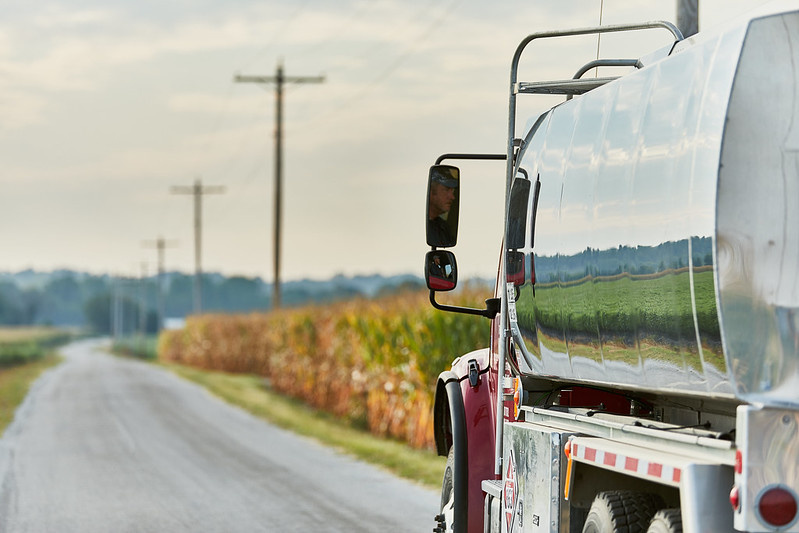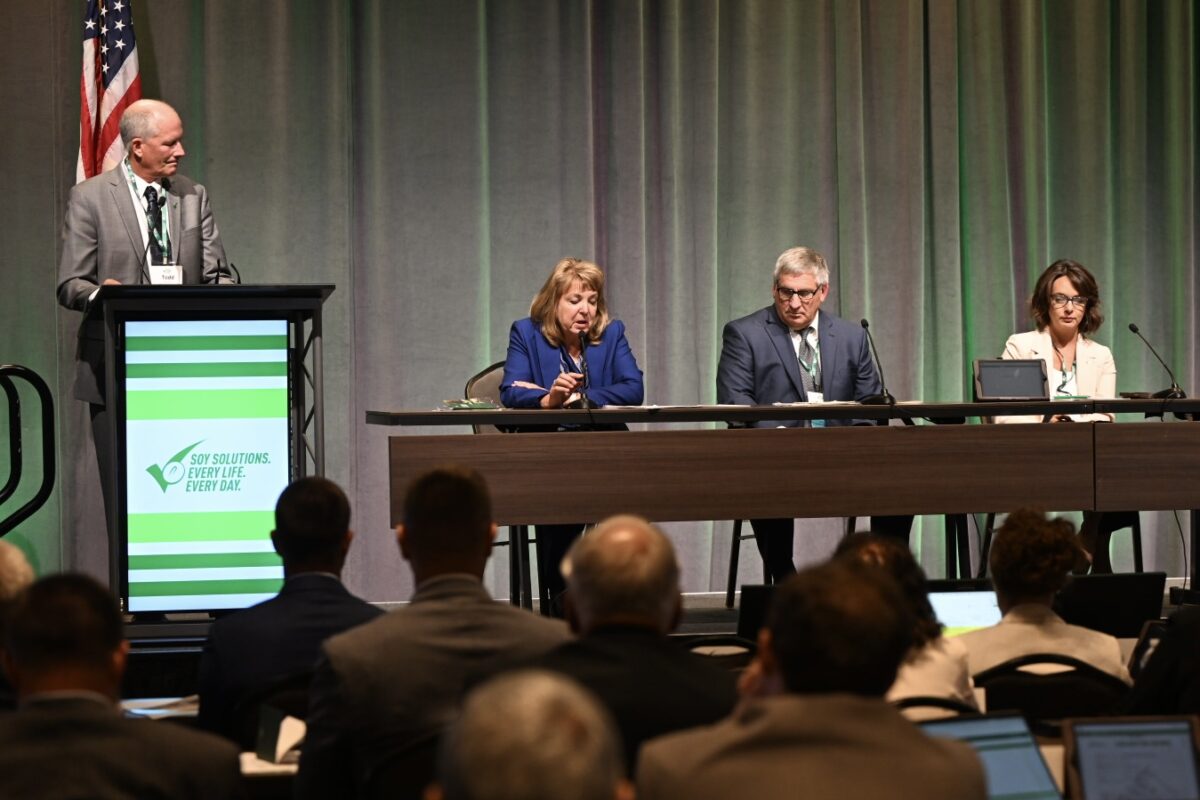COVID-19’s Impact on the Robust Agriculture Supply Chain

Concern. Disorder. Confusion — All feelings running through the minds of the agriculture industry and consumers.
Turning normal living and working upside down, COVID-19 has affected everyone and every industry, including agriculture. With uncertainty, fast-hitting repercussions and empty grocery store shelves, the pandemic has created concerns across the supply chain. Overall, the agriculture industry is banding together to fill the gaps and get the work done from producer to processor to exporter and end users.
The ag supply chain is an integrated system of gears, with all parts working together to supply farmers with the resources they need to keep moving during this busy planting season. Agriculture was recognized as an essential function, and retailers, farmers and all others in the chain have risen to new challenges and continued their work.
Daren Coppock, president and CEO of the Agricultural Retailers Association, said retailers are protecting their customers and employees first and foremost, while they are still doing their jobs and continuing to deliver to farmers. But, he’s seeing a few areas of the supply chain that are taking more substantial hits than others due to the pandemic.
“You have farmers and ranchers along the entire spectrum — from crops to livestock, all of them are having trouble finding a market,” said Coppock. “When the farmer has trouble, that puts the retailers in trouble, too, because their fates are so intertwined.”
Transportation and Trucking
Transportation, another vital part of the supply chain, is feeling the effects of COVID-19. Commercial driver’s licensing is one significant issue.
Those who long-haul drive for a retailer and are hauling farm inputs across state lines need a CDL to ensure they are protected against individual state laws. Farmers who are hauling farm equipment, supplies or agricultural products have a little more protection against CDL laws, as they do not need a commercial driver’s license to operate a truck, combination vehicle (truck and trailer) or a semitractor within a 150-mile radius from their farm.
Coppock said there is a concern felt by drivers who need to get their CDLs renewed. They need to go to a medical clinic to get a health evaluation certificate, and they have to go to a Department of Motor Vehicles to get credentials updated. And both of those functions have been closed in a lot of states.
“So, if someone has an expiring CDL that they need to get renewed, they could have a problem,” he said.
Coppock said the industry is finding ways to work around these issues. For instance, some states have been able to set up centralized processing bureaus where they can renew credentials offline, and others are allowing expired CDLs to extend later in the year when they can get DMV offices open again.
Protective Equipment
Now is one of the busiest times of the year for farmers, co-ops and applicators. As they plant, apply anhydrous ammonia, spray pesticides and more, they need protective equipment to keep from getting fertilizers, chemicals and seed treatment on them.
“Another big issue we’re seeing is the availability of personal protective equipment (PPE) people need for applying fertilizers and pesticides out in the field. That includes masks, rubber gloves and eyewear,” Coppock said. “The masks have been the hardest to find because the N95 type of mask is what everyone wants, and no one can find them.”
Initially, shortages were widespread due to panic-buying, but production appears to be catching up. New guidance allows people to sterilize and reuse equipment or employ alternate PPE. Coppock said FEMA is also working with trade associations such as ARA whose members are having trouble getting PPE. However, for those farm workers who need gear now, it can still be an issue.
“If you are in the field spraying, and you need a mask to apply that pesticide, it’s going to be hard to make that application without the required PPE,” he said.
Shifting Gears
There’s also a small shift in farmers buying seed. Doug Winter, soy checkoff farmer-leader from Mill Shoals, Illinois, said although buying habits are remaining mostly the same, he sees a slight change.
“There’s a little bit of a shift right now, mainly farmers planting more soybeans than corn,” said Winter, who is also an independent representative for a major seed company/brand. “But, not a large shift — probably a 5% or less shift in acreage.”
Input costs on seed and fertilizer are lower for soybeans than corn, which is a large attribute to the switch. According to the USDA, planted corn acreage is up 8% from 2019, and soybean acreage is up 10%.
Changes for 2021
Although the pandemic arrived at one of the busiest times in agriculture, the industry continues to move forward with a relentless goal to produce a safe and sustainable crop. And U.S. soybean farmers, advisers and retailers are still conducting business as best they can.
“Right now, it’s go-time,” Coppock said. “If it’s not about serving growers, we don’t have time for it. And neither do the retailers.”
Thankfully, both Coppock and Winter see a stronger outlook for 2021. However, a few concerns remain.
“In the case of crop protection, I’m more concerned about next year compared to this year. A lot of that stuff was already in the pipeline this year when COVID-19 hit. That puts your supply chain at risk,” Coppock said.
Coppock said the industry might see residual issues come up in 2021. And there will be changes in the way farmers conduct business overall.
“There will be lasting impacts, and a lot of it is in e-commerce. In our business, people have been moving gradually toward online ordering,” Coppock said.
The challenge is making the experience seamless for farmers. They are used to going to the co-op, shop or dealership to shoot the breeze and pick up seed, equipment parts and fertilizer.
“Businesses are making it easier for our grower to pick up the phone to order and making everything available online that you originally had to get in person — but without the coffee and donuts,” Coppock said.
Winter said he hasn’t seen or heard of any concern in seed sales for 2021, but he is hearing from his customers and other farmers about market, profitability and cold weather worries.
“As of right now, seed companies and retailers seem to be pretty much on track with what the plans were,” Winter said. “I have heard a lot of weather-related concerns about replant seed for this year and restocking supplies for next year.”
For the agriculture industry to run smoothly, all aspects of the supply chain need to work together.
“We are doing our part to help keep farmers growing and retailers going,” Coppock said.



